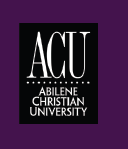Article Title
Abstract
Far from a mere historical or theological curiosity, eschatology has a profound formative impact on the way adherents view life, purpose and their relationship to Creation. Typical contemporary conceptualizations of heaven in American evangelicalism describe an otherworldly, intangible and wholly spiritual realm in whichGod’s reign is complete and all the faithful reside in total peace and comfort after a final judgment. Such “transcendent-heaven” eschatology is vastly different from historically orthodox eschatology recorded through the eighteenth century and still maintained by the Roman Catholic and Orthodox Churches, among others. This historical-theological survey suggests that transcendent-heaven eschatology was first-articulated by Jonathan Edwards as a result of his experiences in the First Great Awakening and his departure from prevailing Puritan doctrines. Transcendent-heaven eschatology has been promulgated by the evangelicalism which Edwards strongly influenced and by Christian hymnody, beginning in the eighteenth century. These developments are tracked through the published works of both Jonathan Edwards and his contemporary Puritan leaders as well as through the last three centuries of Christian hymnody.
Creative Commons License

This work is licensed under a Creative Commons Attribution 4.0 License.
Recommended Citation
Ford, Patrick
(2013)
"Eschatological Minority Report: Transcendent Heaven,"
Conversations: A Graduate Student Journal of the Humanities, Social Sciences, and Theology: Vol. 1:
No.
1, Article 2.
Available at:
https://digitalcommons.acu.edu/conversations/vol1/iss1/2


